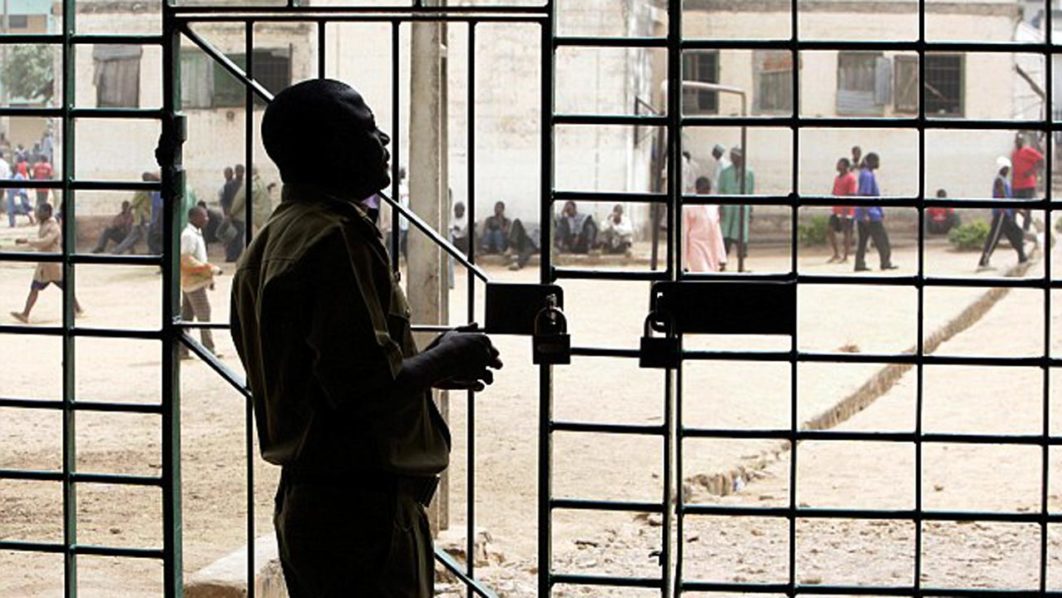Prison Rehabilitation and Welfare Action (PRAWA) and the Nigerian Correctional Service (NCoS) have called on the National Assembly to enact law to back up reintegration of ex-offenders into the society.
PRAWA and NCoS said effective reformation, rehabilitation and reintegration of ex-offenders cannot be achieved through hate and stigmatisation.
The groups disclosed this at the national webinar celebration of the ‘Yellow Ribbon’ campaign 2023 organised to sensitise and create awareness that ex-offenders can properly re-integrate into the society.
Executive Director of PRAWA, Dr. Uju Agomoh said ex-offenders deserve a second chance, adding that there is need to reform ex-convicts into the society and remove their stigmatisation.
Agomoh said that the notion on the yellow ribbon message is not for the country alone, but an international message to bring reform to ex-offenders and what the community can do to assist them.
“It is important to know that there are people in custody that are innocent, some who committed lesser offences that ought to do community service. It is a concept to engage those who are in conflict with the law.
“The notion of yellow ribbon is to make the community safer and give a second chance to offenders as well as removing stigmatisation,” she said.
In his remark, M. I. Atta, Deputy Controller General of Corrections (DCG) Non-Custodial, said the programme aims to give hope to the hopeless, and urged PRAWA to sponsor a bill to that effect.
He said stigmatisation affects reintegration of ex-offenders into the society, “a situation where people reject an ex-convict, which makes them go back into crime.” He said apart from skill acquisition open to inmates in the correctional centres, they signed a Memorandum of Understanding (MoU) with the Open National University of Nigeria (NOUN) to help interested inmates get education. He called on other stakeholders, as well as PRAWA to sponsor a bill on it.
A remark by the Chairman of National Parole Board, Retired Justice Sulieman Galadima said the cycle of correction of offenders cannot be complete without a proper programme of getting them settled back into society.
He said: “Experience has shown that the process of settling back into society has always been hampered by the attitude of members of the society when they refuse to forgive these ex-offenders, reject, stigmatise and make it difficult for them to find their feet again and provide for themselves.
“The Yellow Ribbon project is a noble initiative because it is targeted at breaking barriers against ex-offenders, it preaches ‘second chance’, ‘non-stigmatisation’, unlocking of the ‘Second Prison’ and giving reformed ex-inmates opportunities to thrive. A successfully re-integrated ex-offender can hardly go back to a life of crime and this is to the benefit of our society.
“I consider this webinar a confirmation of the Controller General and in fact all officers of the Correctional Service’ commitment to the new approach of the ‘Service’ to Corrections. Leading on the Yellow Ribbon initiative and connecting to the society on this is one of the ways the Service has shown acknowledgment of the role of every member of the society in ensuring proper management of offenders.”
The campaign also supports deepening of the implementation of the innovative provisions of the Nigerian Correctional Service Act 2019, especially the Section 2 (1) (a-d).
The Yellow Ribbon Campaign speaks directly to the work of Parole Board Members.
Section 468 of the Administration of Criminal Justice Act 2015 and relevant sections of the laws of the different States of the federation provide that a deserving incarcerated person can be granted early release and Section 40 of the Nigerian Correctional Service Act 2019 empowers the Controller General to appoint Parole Board Members for this purpose.
The laws provide for early supervised release of offenders on long term incarceration who are of good behaviour and have learned a skill or acquired education, while in custody to enable them to start the process of reintegration back into the society.
“As Board members we are interested in the message of non-stigmatisation, second chance and reintegration as this will benefit persons released on parole and other ex-offenders. The National Parole Board members of the 36 states and the FCT, therefore, stand with the Nigerian Correctional Service on this and are ever ready to support any progressive initiative of the Service,” Justice Galadima declared.

